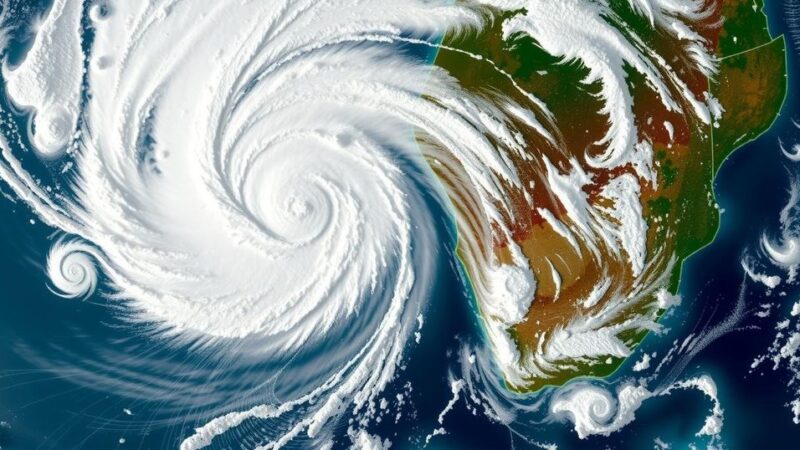Israel is conducting a military operation in Lebanon aimed at securing its northern border against Hezbollah following escalated tensions after the Hamas attack on October 7. The operation has caused significant humanitarian concerns in Lebanon and raised fears of a wider conflict involving Iran. Netanyahu emphasizes Israel’s military reach, suggesting a potential risk of escalating regional tensions, while international communities express concern over the evolving situation.
Israel has commenced a military operation in Lebanon, citing security concerns along its northern border, following the escalation of conflict after the Hamas attack on October 7. This invasion includes targeted ground raids against Hezbollah, the Lebanese militant group allied with Hamas. Over recent weeks, the situation has deteriorated, marked by continuous exchanges of fire and significant casualties on both sides. According to the United Nations, the humanitarian impact has been severe, with over one million displaced individuals in southern Lebanon, while around 60,000 Israelis have been evacuated from northern locales. The Israeli Defense Forces (IDF) are conducting a limited operation aimed at clearing Hezbollah’s military presence near the border. Israeli military leaders are seeking to establish a buffer zone to facilitate the safe return of evacuated Israeli citizens. Hezbollah’s military capabilities pose a significant threat, closely supported by Iran, which provides vital funding and military aid to the group. Tensions have escalated to a point where a direct conflict with Hezbollah could risk drawing Iran into the fray, exacerbating an already volatile regional landscape. Notably, Israeli Prime Minister Benjamin Netanyahu asserted that Israel’s reach extends throughout the Middle East, indicating a readiness to confront threats, potentially from Tehran. Western nations have expressed significant concerns about the implications of Israel’s actions, urging restraint to prevent a broader regional conflict involving Iran. The unfolding situation presents a precarious balancing act for regional powers, with global observers closely monitoring Iran’s potential response to Israel’s military incursions into Lebanon.
The ongoing conflict between Israel and Hezbollah has its roots in the complex political and military dynamics of the Middle East. Following several hostilities, particularly the 2006 Lebanon War, Hezbollah has evolved into a formidable armed group, often seen as an extension of Iranian influence in the region. The recent clashes have escalated due to the recent conflict between Israel and Hamas, leading to hostilities along the Lebanese border. This complex relationship, coupled with Iran’s longstanding antagonism towards Israel, raises concerns that a local conflict could ignite a wider regional war involving multiple countries. International powers, including the United States and European allies, are apprehensive about the ramifications of an intensified Israeli military response and the potential for Iranian intervention.
In summary, Israel’s invasion of southern Lebanon is a calculated military operation aimed at neutralizing Hezbollah threats along its northern border and establishing security for its citizens. However, this military escalation carries the significant risk of inviting Iranian involvement, which could lead to a broader regional conflict. The implications of these developments have drawn the attention of the international community, reflecting the intricate and often perilous web of alliances and hostilities in the region.
Original Source: www.independent.co.uk







